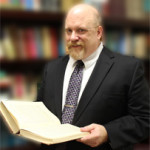(original source here)
[The following is summarized from my larger book, Sound Doctrine Concerning the Holy Spirit: His Person, Work, and Gifts (not yet published). It is intended as a brief summary of Biblical data concerning tongues, based on exegesis developed at greater length in my book.]
What Biblical Tongues Were:
The manifestation was supernatural (Acts 2:1-4).
The manifestation involved speaking. (We read in Acts 2:4, “and they were all filled with the Holy Spirit, and they began to speak in different tongues, just as the Spirit was giving them to declare” [emphases added]. In fact, we must notice that this activity of speaking in tongues began before any of the listeners heard the speakers. The stress is on what the believers say, not on what the listeners hear. They spoke in other languages. Also, in v. 6 we read, “each one was continually hearing them speaking in his own dialect”; and again, in v. 11, “we hear them speaking in our own tongues the mighty deeds of God” [emphases added]. There is a reason it is referred to as the gift of “tongues,” not “ears.”)
The manifestation involved languages that were intelligible. (Cf. Acts 2:9-11; 1 Corinthians 14:19), known (Greek glossa means language; cf. also Corinthians 12:10, 28; 14:21, 22), and not naturally learned (Acts 2:7).
Tongues were unsought (Acts 2; 1 Corinthians 12:11, 18).
Tongues were of low priority (1 Corinthians 12:28, etc.).
Tongues were designed to be temporary (1 Corinthians 13:8-10).
Tongues were a sign for specific unbelievers (1 Corinthians 14:21, 22).
Tongues were subject both to self-regulation and to external regulation (cf. 1 Corinthians 14:26-27). (The suggestion that all claims to speaking in tongues must be accepted, and cannot be prohibited, has no basis in Scripture.)
What Biblical Tongues Were (and Are) Not:
Not ecstatic (i.e. gibberish, or “exalted non-language”; Greek glossa never once means gibberish, which the dictionary defines as “rapid and incoherent talk; unintelligible chatter”; it consistently has the well-attested and common meaning of language. Gibberish is not a language.)
Not intended for self-edification (1 Corinthians 14:4; cf. 1 Corinthians 10:24; 12:7; 1 Thessalonians 5:11).
Not a “prayer-language.” (There is no positive statement that this is tongues’ design, it does not fit the stated design, and the passages cited do not teach that this is tongues’ purpose.)
Not a merit badge signifying superior spiritual maturity or status. (Simply ask yourself: which assembly is the only church in the New Testament that was said to feature tongue-speaking on a regular basis? It was the church in Corinth. Then ask further: what was characteristic of the spirituality of that church? They were as men of flesh, infants in Christ [1 Corinthians 3:1]; it was a church featuring schisms, outrageous heresy, stunning immorality, and petulant stubbornness. None of this consitutes a glowing testimony as to the tongue-speaking Corinthians’ superior spirituality.)
Not contemporary. (Whatever is happening today, it is not Biblical tongues. The modern phenomena simply do not measure up to Biblical standards. While studies of thousands of modern “tongue-speakers” have been performed, not one instance fitting the Biblical criteria has been documented. Unbelievers rightly find the modern practice absurd and laughable — which contrasts rather starkly with Acts 2:6-12. On the day of Pentecost, no serious observer, saved or unsaved, doubted the supernatural nature of the occurrence. Today, by contrast, no impartial observer believes the genuineness of “tongues” as unlearned foreign languages!)
Not a large-group activity (1 Corinthians 14:27). (If five hundred people are speaking in tongues in church assembly, at least four hundred and ninety-seven are sinning against God’s declared will.)
Not to be altogether forbidden (1 Corinthians 13:39b). (However, note well: Paul does not say “do not forbid gibberish, do not forbid babbling, do not forbid so-called ‘tongues’ even if they bear no similarity to genuine tongues.” No pastor has had occasion to “forbid” speaking in tongues for the last 1900 years, because no documented case of Biblical tongue-speaking has occurred.)

